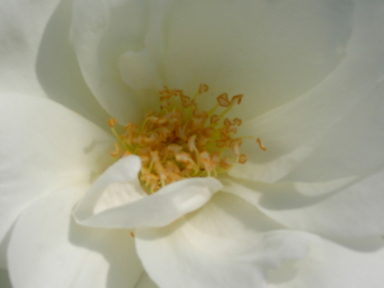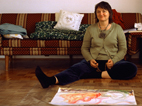The Union of Constructivist and Buddhist Understandings in the Context of Psychotherapy
George Kelly1 made a radical shift in the way psychotherapy was conceived by placing personal enquiry as the core issue of the psychotherapeutic endeavour. Personal Construct theory put the client as personal scientist front and centre of psychotherapy. Kelly's model sees construal as an individual's best attempt at any given moment to make sense of the present and anticipate the future. This approach therefore sees the past not so much as a solid body of experience but rather as the ground from which our constructs have been formed. Most of us at least at times end up 'anticipating our past2'; as the past is all we know. According to Kelly if we are good personal researchers then we can examine our construals and the anticipations which come from them. These constructs could change and our experience of the future therefore be different. The development of the Constructivist philosophical position in psychotherapy strongly carries this emphasis on personal enquiry. George Kelly in his paper, All Behaviour is an Experiment went as far as to say that all human conditioning is anticipatory and that behaviour is a way of exploring the environment to see what works. Kelly described the cycle of experience as rooted in the way we construe our world and the moment of construal as nothing but anticipations which have been tested within encounters. These then lead to validation/invalidation and construal/reconstrual. According to Kelly, if we wish to encounter the world in different ways we need to be ready to reconstrue our anticipations. Kelly was also clear that theory was not reality rather an approximation to it. Von Glasersfeld3 posits that we could never know reality for definite. All we could ever say about a given situation is that our theory about it has been disproved in one area, but we can never say for certain that a particular theory or model of the universe/reality is correct. From a radical constructivist stance it is argued that we are the creators of our own reality and bring this reality forth in the process of construing the world4. The perception behind this position can be seen as not far from a paraphrase of Shakyamuni Buddha's first teaching: Neither assert nor deny. 
How then might the Buddhist concept of mind fit with Kelly's assumptions? In the Buddhist view, particularly the Madhyamika5 philosophy, mind is open and all-pervasive as space: luminous awareness without any intrinsic content but with the potential to manifest as anything whatsoever. Mind conceived to be like space is so different from models of mind which posit an unconscious as a series of locked boxes which it may or may not be possible to unlock. In the Buddhist-based model of the mind all we need to do is open, there is nothing to hide or to be hidden. However there are an infinite number of possible concepts/constructs which if taken to be solid and real keep us from experiencing this luminous openness in which the mind is unceasingly self-cognisant. These concepts/constructs distort the clarity and manifest as projections and prevent the mind from experiencing itself or for that matter, anything beyond itself, without filters of (mis) conception/construal. Resting beyond the cycling is congruent with the view that even positive cycles have a shadow side. How much we suffer in the shadow depends on how attached we are to old assumptions about how things are and are supposed to be. Where we identify strongly with the underlying constructs and construe our lives through their consequent anticipations this limits our freedom. Tara Rokpa Psychotherapy posits the possibility of cultivating a relaxed openness which allows the best chance for constructs to loosen/tighten and for new, less limiting construals to arise in the moment by moment challenge of encounter. Constructivism has opened up new bridges between different areas of personal and scientific inquiry in the West and also with Eastern approaches to mind. There has been a long tradition of personal inquiry and personal and intellectual experimentation within Eastern traditions. In developing Tara Rokpa Psychotherapy we, as therapists, are particularly interested in enquiring into Buddhist understanding of the mind and the way that this may inform our understanding of how we bring forth our world and how this may inspire creative, useful and ethical domains of enquiry with other psychotherapists. Ken Wilber6 has emphasised that such personal enquiry requires equivalent rigour to that demanded in objective Western science. If we are to understand what meditation can teach us about the mind then we need to meditate just as the budding scientist must engage with research protocols and learn to hold to them whatever results may be manifesting. Buddhism, for example, is interested in subtle constructs that may influence the way we experience the world, particularly motivation or intentionality. The ability to conceive of and visualise a world beyond duality and thus beyond suffering, even as a possibility, may influence the way one experiences the world.
|

